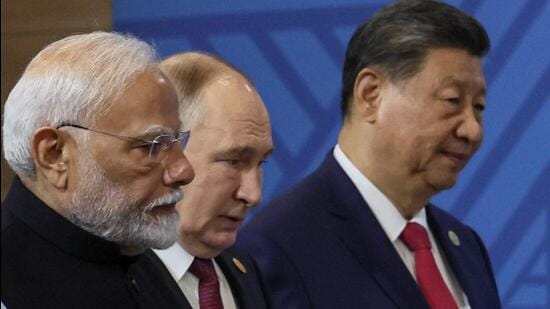The India-China border dispute, spanning thousands of kilometers along the Line of Actual Control (LAC), remains one of the most intricate territorial conflicts in Asia. According to Russia’s envoy to India, the resolution of this dispute requires more than diplomatic negotiations; it demands a foundation of mutual trust and confidence between the two nations. The envoy emphasized that while both India and China are significant powers with a shared history and culture, differing perceptions of territorial boundaries have fueled tension along the LAC. This unresolved conflict has led to several confrontations, notably in areas like Galwan Valley, where casualties occurred on both sides.
Historically, India and China have held multiple rounds of talks to resolve these border issues, but without lasting success. While frameworks and dialogues—such as the Working Mechanism for Consultation and Coordination on India-China Border Affairs—exist, real progress is stalled by mutual suspicions. Trust, as the Russian envoy highlighted, is a critical missing element. Both sides need to demonstrate commitment to peaceful resolutions, moving beyond military posturing and emphasizing diplomatic efforts.
Russia, with historical ties to both India and China, sees itself as a stabilizing influence and hopes to foster communication. Russia’s interest in stability stems from its own geopolitical objectives and the potential for enhanced regional cooperation. The envoy expressed optimism that, with time and increased diplomatic engagement, India and China could reach an agreement that respects each other’s sovereignty. However, achieving this goal requires gradual trust-building, concessions, and a dedication to addressing mutual concerns. The Russian envoy believes that if both nations genuinely prioritize peace and economic cooperation over territorial disputes, they can make strides toward a sustainable and peaceful border resolution.
Share your views in the comments

